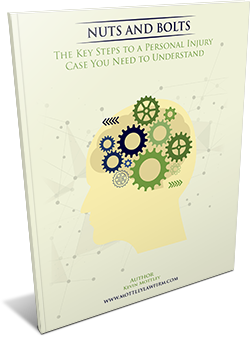8 Tips for Handling Calls From Insurance Adjusters
When you get a call from the insurance company representing the truck operator, the fleet company, or some other responsible party, sending the call to voicemail is perfectly acceptable. Then, listen to the message and let your legal counsel follow up on your behalf.
If you decide to pick up the call, keep these key tips in mind while navigating that conversation.
1. Get Their Contact and Claim Information
Take note of the specific insurance adjuster calling you about your claim. Get their name and direct phone number, as well as your claim number. Write down the date and time of the call for your records. Pass all of this information along to your personal injury lawyer.
2. Speak Respectfully and Keep Emotions in Check
It’s only natural that emotions might get the best of you, but it’s in your best interest to remain cool. Be polite with the insurance adjuster and speak in a respectful tone. They may try to disarm you with feigned kindness, but don’t be fooled. While you shouldn’t get angry or upset on the phone, you shouldn’t let down your guard either.
3. Contact Your Truck Accident Lawyer
Take the time to ask your truck accident attorney any questions you have. Then, when an adjuster approaches you, make it clear that you hired a lawyer to represent your case. Stand firm. The adjuster may pressure you to answer their questions right away, but tell them you’ll call them back after discussing the matter with your counsel.
4. Stick Only to the Basics
The first phone call from the insurance company may go under the guise of confirming basic information. You may provide them with your name, phone number, and vehicle description. If an adjuster starts to ask more detailed questions, like asking you to describe how the truck accident happened or the extent of your injuries, tell them your attorney will follow up with them regarding details.
5. Avoid Discussing Fault
Your words can be misconstrued and used against you. Never say anything that could be misinterpreted as admitting fault for an accident. This includes seemingly benign statements like, “I didn’t see the truck coming.” Avoid discussing any details like speed or road signs, too. The insurance company may use these statements as evidence to reduce or deny your claim.
6. Decline Making a Recorded Statement
One of the most common myths about truck accident cases is that insurance always covers your damages. This isn’t true. To protect your rights, don’t agree to a recorded statement that’s later transcribed into a written document. Having a lawyer present who can speak on your behalf is much better.
7. Refuse to Sign a Medical Release Form
Be wary of signing a medical release form after a Virginia truck accident. The insurance company can gain access to your entire medical history. Then, they might use pre-existing conditions, for instance, to downplay or deny your personal injury claim.
8. Don’t Accept the First Settlement Offer
Car and truck accident victims commonly make the mistake of jumping on a quick settlement. They want to put the case behind them as soon as they can. This is an error, as the first offer will typically be much less than the full compensation you deserve. Let your legal team estimate the value of your claim and negotiate for a fair settlement.
We Provide Skilled Legal Representation in Virginia Truck Accidents
Hiring an experienced Richmond truck accident lawyer is a vital step you can take to protect your rights after a traumatic collision. Our seasoned legal team at The Mottley Law Firm will passionately defend your right to maximum compensation if you or a loved one is hurt.
We represent your best interests when speaking with insurance companies on your behalf. Carefully investigating your claim, we work tirelessly to overcome common defenses in truck accident cases like yours. Let us build a strong case and handle all communications so you can focus on your recovery.




